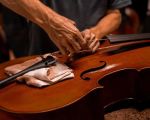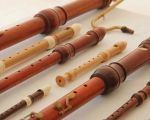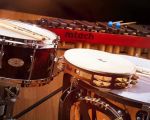- 1-Understanding-Which-Music-Instrument-Is-Hard-To-Learn
- 2-Factors-That-Make-An-Instrument-Difficult-To-Learn
- 3-Top-Challenging-Music-Instruments-Explained
- 4-Real-Life-Examples-Of-Learning-Difficult-Instruments
- 5-How-Beat-Trigger-Can-Help-With-Learning-Hard-Instruments
1. Understanding Which Music Instrument Is Hard to Learn
Asking “which music instrument is hard to learn” is common among beginners and even experienced musicians looking to expand their skills. The difficulty of mastering an instrument can vary greatly depending on the player’s natural aptitude, dedication, and the specific challenges posed by the instrument itself. Understanding these nuances helps set realistic expectations and guides learners toward the instrument best suited to their goals.
The complexity lies not only in the mechanics of playing but also in the coordination, breath control, reading music, and sometimes physical endurance. For example, an instrument that demands intense breath control will be more challenging for someone new to wind instruments.
1.1 The Subjective Nature of Difficulty
It’s important to recognize that difficulty is often subjective. What feels impossible for one player may be enjoyable and intuitive for another. However, certain instruments consistently appear on lists of the most difficult to learn due to their technical demands and long learning curves.
1.2 Setting Expectations
Knowing which music instrument is hard to learn allows learners to prepare mentally for the journey ahead. It also emphasizes the importance of patience and structured practice over rushing mastery.
2. Factors That Make An Instrument Difficult to Learn
Several key factors contribute to the complexity of learning a musical instrument. These include physical requirements, technical skill level, theoretical knowledge needed, and the instrument’s responsiveness to player input.
2.1 Physical Coordination and Dexterity
Instruments like the violin require precise finger placement and bow control, demanding fine motor skills that take years to refine. Similarly, brass instruments need strong embouchure and breath support, making them physically taxing.
2.2 Music Theory and Reading Skills
Some instruments come with more complex notation systems or require advanced sight-reading skills. Instruments such as the harp or classical guitar involve intricate fingerings and chord structures, adding to the learning curve.
2.3 Sound Production and Maintenance
Producing the right sound consistently can be challenging. For instance, woodwind instruments require mastering breath control and embouchure, while percussion instruments like the timpani require precise timing and coordination.
3. Top Challenging Music Instruments Explained
Several instruments are widely recognized as particularly hard to learn. This section explores some of the most challenging choices and why they demand extra effort.
3.1 Violin
The violin is often cited as one of the hardest instruments due to its lack of frets, which means players must develop a highly accurate ear for pitch. Bowing technique and finger positioning require immense practice, and beginners often struggle with producing a pleasant tone.
3.2 French Horn
The French horn demands complex embouchure control and precise lip tension to hit correct notes. Its extensive range and the similarity of partials make it easy to hit wrong notes, frustrating beginners.
3.3 Organ
Playing the organ involves coordinating hands and feet simultaneously, managing multiple keyboards and stops. This multitasking requires exceptional concentration and practice, often making the organ difficult for new learners.
4. Real-Life Examples of Learning Difficult Instruments
One notable story involves a classical violinist who spent over five years mastering basic techniques before performing publicly. The initial months were full of frustration, especially with intonation and bowing control, but consistent practice and guidance eventually led to a rewarding career.
Similarly, a jazz musician once shared their struggle with the French horn, an unusual choice for the genre, highlighting how perseverance and tailored practice methods helped overcome early challenges.
5. How Beat Trigger Can Help With Learning Hard Instruments
For anyone wondering “which music instrument is hard to learn,” Beat Trigger provides a comprehensive platform offering the best resources, instruments, and accessories to support your journey. Whether you’re starting with a violin, French horn, or organ, our selection and expert advice can make a significant difference in your progress.
Beat Trigger offers high-quality instruments tailored for learners at every stage, plus educational materials and support to make the process less daunting. Exploring Beat Trigger’s offerings can equip you with the tools and confidence needed to tackle even the hardest music instruments.








